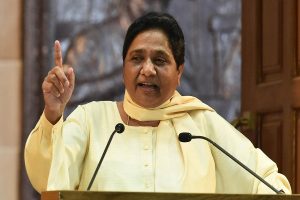The number of registered complaints against unregistered senders or spam calls/SMSs reduced to 1.51 lakh in October, a 20 per cent drop from August, the government said on Wednesday.
In September, this figure (as reported by access providers) was 1.63 lakh, a 13 per cent drop from August, according to the Telecom Regulatory Authority of India (TRAI), which has taken several measures to combat the persistence issue of spam calls and SMSs.
Advertisement
On August 13, the telecom regulator issued directions, mandating that any entity found to be making promotional voice calls in violation of regulations would face strict consequences.
This includes disconnection of all telecom resources, blacklisting for up to two years, and a ban on new resource allocation during the blacklisting period.
Consequent to this direction, Access providers have taken widespread actions which led to a significant reduction in the complaints registered against the spam calls.
To enhance message traceability, TRAI issued direction on August 20 and mandated that the trail of all messages from senders/principal entities to recipients must be traceable from November 1.
All access providers have since implemented the technical solutions.
As a result of these efforts, more than 13,000 principal entities (PEs) have already registered their chains with the respective access providers and further registration is in progress at a rapid pace, said TRAI.
Access Providers have sent many warning notices to all principal entities and registered telemarketers (RTMs) who have not yet implemented necessary changes.
“All PEs and telemarketers (TMs) are advised to complete the declaration of chains on priority as any message that fails to adhere to the defined telemarketer chain will be rejected,” said TRAI.
Last month, the government announced a new spam-tracking system to identify and block incoming international calls posing as Indian phone numbers.
The system was made operational and within 24 hours of operation, about 1.35 crore or 90 per cent from all the incoming international calls with Indian phone numbers were identified as spoofed calls and blocked by telecom service providers (TSPs) from reaching Indian telecom subscribers.











